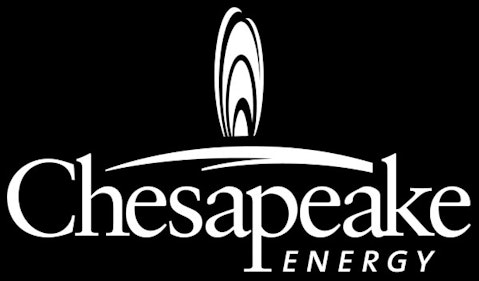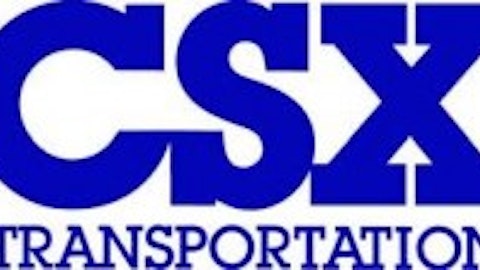Some interesting news caught my interest on what could indeed be Buffett’s next elephant. Berkshire Hathaway Inc. (NYSE:BRK.B)‘s Burlington Northern Santa Fe is pursing the use of natural gas as its primary fuel for powering its railcars. This brings to light thoughts as to whether Buffett could, or should, be considering his next buyout target as a natural gas company. So which natural gas companies could Buffett snatch up?

Behind only Exxon Mobil Corporation (NYSE:XOM), Chesapeake Energy Corporation (NYSE:CHK) is the second largest natural gas producer in the U.S. Anadarko Petroleum Corporation (NYSE:APC) is the country’s third largest natural gas producer and Devon Energy Corp (NYSE:DVN) the fourth.
Buffett openly noted he is looking for his next “elephant” and invited companies to apply for consideration. By elephant, Buffett means his next big purchase. Buffett had this to say in his latest letter to shareholders: “But we still have plenty of cash and are generating more at a good clip. So it’s back to work; Charlie and I have again donned our safari outfits and resumed our search for elephants.”
Why the move to natural gas makes sense
The Energy Information Administration expects the future consumption of natural gas to be a steady up-and-to-the-right trend. As an engine fuel, natural gas only accounts for 0.2% of the market, meaning there is plenty of room for this fuel to grow. Other publicly traded rail companies — Union Pacific Corporation (NYSE:UNP). and Norfolk Southern Corp. (NYSE:NSC). — have also been working with engine manufacturers to explore the move to natural gas. Meanwhile, another major rail company, CSX Corporation (NYSE:CSX), is studying the technology.
Fuel is second to only labor as the rail companies’ top expense. For 2012, diesel fuel costs stacked up as follows (as a percent of revenue):
Union Pacific: 17.2%
CSX: 14.2%
Norfolk Southern: 14.3%
Union Pacific burned 1.09 billion gallons of fuel last year at an average price of $3.22 a gallon. A 30% reduction in fuel costs for Union Pacific would lead to a 27% increase in earnings. However, the move to natural gas would be even more monumental for BNSF, as it is the second largest user of diesel in the U.S., behind only the U.S. Navy.
The synergies for BNSF and a natural gas company would be quite impressive, but what’s the likelihood of such a deal? Here is how the enterprise values stack up for the top three natural gas prices:
Chesapeake Energy Corporation (NYSE:CHK): $27 billion
Anadarko Petroleum Corporation (NYSE:APC): $53 billion
Devon Energy Corp (NYSE:DVN): $27.5 billion
Putting the above numbers in perspective, Buffett’s cash outlay for H.J. Heinz Company (NYSE:HNZ) was $23 billion, and his Berkshire company still has some $47 billion of cash on hand.
So which company is the best option? Chesapeake is the cheapest of the major gas producers…
Price to Sales Ratio
Chesapeake: 1.2
Anadarko: 3.1
Devon: 2.4
While fund managers Mason Hawkins of Southeastern Asset Management and Carl Icahn are big fans of the turnaround story at Chesapeake (check out all of Icahn’s picks), fellow billionaire T. Boone Pickens has been a long-time advocate of natural gas and has Anadarko as his fourth largest holding (6.7% of his portfolio), and Devon Energy Corp (NYSE:DVN) as his seventh largest (6.3% of his portfolio).
Part of the draw for Buffett to Chesapeake Energy Corporation (NYSE:CHK) is its leading natural gas production position, behind only Exxon. What’s more is that Chesapeake’s assets are located in the U.S., unlike Anadarko. The company has also been aggressively reducing debt by selling off and monetizing previously unused assets. Part of what I think rules Anadarko out as a Buffett elephant is its international exposure and high price tag to purchase the company. Anadarko Petroleum Corporation (NYSE:APC) has the majority of its international exposure based in Africa, where the political instability and geographical distance will likely make the stock unappealing to Buffett.
Devon Energy Corp (NYSE:DVN)’s current production portfolio is around 50% natural gas, 20% NGL and 30% oil. However, it may have more exposure to the oil markets than expected, making it a poor purchase for Buffett. Devon’s acreage in the popular Permian Basin is also heavily oil-rich, while the company has a recent joint venture to boost its exposure to oil sands, which is a negative for attracting Buffett as a buyer.
It appears that Chesapeake might be the better buy, with a reasonable sub $30 billion price tag, a leader in natural gas reserves and one of the top producers of the commodity. Chesapeake also has the better expected growth, with Wall Street expecting the company to grow EPS at 47% annually, compared to Devon Energy Corp (NYSE:DVN)’s 7% and Anadarko Petroleum Corporation (NYSE:APC)’s 21%.
The bottom line
BNSF hopes to start testing during the third quarter, which includes using engines from both Caterpillar Inc. (NYSE:CAT) and General Electric Company (NYSE:GE), and making a final decision in 2014 on whether to move forward with the conversion. Although this would be a long-term investment decision for BNSF, moving forward with such a deal would be a step in the right direction. New Environmental Protection Agency air-pollution standards for railroads will soon require railroads to add expensive emissions-control equipment to new diesel locomotives in 2015.
As far as the best potential acquisition for Buffett, it appears that Chesapeake Energy Corporation (NYSE:CHK) is the cheapest and has one of the best asset portfolios, so keep an eye on this space.
The article Billionaire Warren Buffett’s Next Elephant originally appeared on Fool.com and is written by Marshall Hargrave.
Copyright © 1995 – 2013 The Motley Fool, LLC. All rights reserved. The Motley Fool has a disclosure policy.

